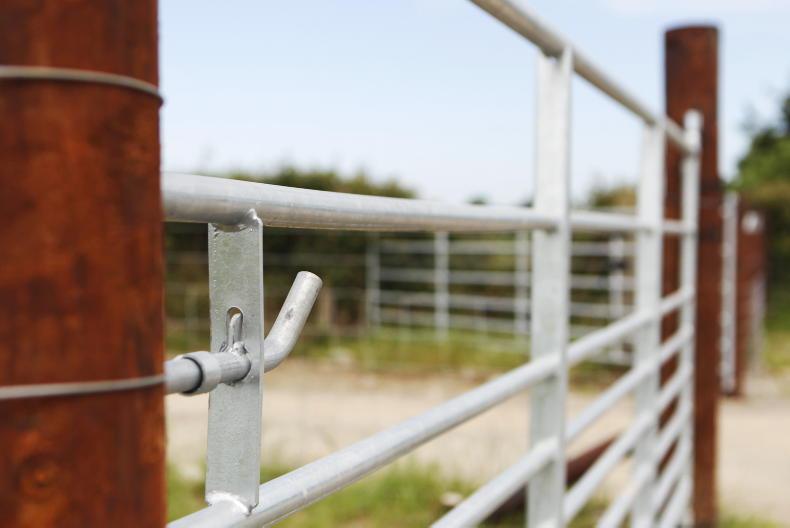With B-day set for 29 March and CAP 2020 discussions intensifying, 2019 will be an important year for Irish agriculture. Plans for a no-deal Brexit within the Department of Agriculture “are well advanced”, according to Minister for Agriculture Michael Creed. He added that they are in the process of hiring additional staff.
“A good Brexit is not as good as what we currently have. A hard Brexit is an entirely different beast altogether, it’s not a pretty picture. We would be foolish to think that the odds on a hard Brexit haven’t shortened significantly – they have.”
If, for example, the UK market closed to the Irish beef industry overnight, Minister Creed believes the European Commission would step in. He said Brussels is aware of the impact 280,000t of Irish beef looking for a home outside of the UK would have on the European market.
“If the UK market goes south for the Irish beef industry, then certainly we have a major concern on our doorstep that the Commission has to respond to. That’s undoubtedly the case. There is intervention at the moment, but the price is so low [it is] meaningless.”
CAP 2020
In terms of Common Agricultural Policy reform, the biggest concern is still the budget. The minister believes there is substantial momentum in the European Council of Agricultural ministers to secure additional funding above the €365bn set out in the Multi-Annual Financial Framework 2021 to 2027, but can we increase coupled payments to certain sectors under the new CAP?
“That is a view some member states have. We feel that coupled payments were removing farmers from the reality of the marketplace. I think we need to be very careful that any national plans we develop don’t fundamentally alter the journey we have been on, which is to improve the herd and allow farmers the freedom to respond to the marketplace.”
Moving closer to home, this spring will see increased numbers of calves born on Irish farms. Last year, Ireland exported 150,000 in the spring, the highest since 2010. The minister is calling on the dairy industry not to walk away from that fact.
“February, March and April are really challenging months. The dairy industry needs to be acutely aware that the markets they have and the markets they seek are acutely aware of these issues around welfare, sustainability and antimicrobial resistance. The dairy industry needs to be integrally involved in a solution to this. We are working on a dairy beef index so that the progeny of the dairy herd will be better able to produce a viable beef product.”
Spring is also a busy period for the Regional Veterinary Laboratories and the minister has the long-awaited cost-benefit analysis of the six labs. He says the report will be published in due course and there are unlikely to be any closures. “What we did was the prudent thing to do. Are these labs fit for purpose? If they aren’t, what is the level of investment that will be required? We will be improving and investing in the service delivered to farmers and in the laboratory network,” Minister Creed said.
In 2018, the Irish Farmers Journal revealed that a farmer had entitlements mishandled by a Department inspector in 2010 and 2011. We asked if the minister would order an independent investigation into the way complaints are dealt with by the Department, as requested by the farmer.
“I am satisfied that incidences that arise are a very small minority. We run a system that we have to have a degree of accountability for public funds. The inspection regime at its highest is 5%. For every incident, and one incident is too many, there are going to be cases when we get it wrong. We own up when it happens. I don’t think we have a system that is hugely problematic.”
The minister’s highlight of 2018
Securing beef access to China.
Read more
No details of contingency plan for farmers
Border control posts for live animals, vets and food needed at Ireland’s ports
With B-day set for 29 March and CAP 2020 discussions intensifying, 2019 will be an important year for Irish agriculture. Plans for a no-deal Brexit within the Department of Agriculture “are well advanced”, according to Minister for Agriculture Michael Creed. He added that they are in the process of hiring additional staff.
“A good Brexit is not as good as what we currently have. A hard Brexit is an entirely different beast altogether, it’s not a pretty picture. We would be foolish to think that the odds on a hard Brexit haven’t shortened significantly – they have.”
If, for example, the UK market closed to the Irish beef industry overnight, Minister Creed believes the European Commission would step in. He said Brussels is aware of the impact 280,000t of Irish beef looking for a home outside of the UK would have on the European market.
“If the UK market goes south for the Irish beef industry, then certainly we have a major concern on our doorstep that the Commission has to respond to. That’s undoubtedly the case. There is intervention at the moment, but the price is so low [it is] meaningless.”
CAP 2020
In terms of Common Agricultural Policy reform, the biggest concern is still the budget. The minister believes there is substantial momentum in the European Council of Agricultural ministers to secure additional funding above the €365bn set out in the Multi-Annual Financial Framework 2021 to 2027, but can we increase coupled payments to certain sectors under the new CAP?
“That is a view some member states have. We feel that coupled payments were removing farmers from the reality of the marketplace. I think we need to be very careful that any national plans we develop don’t fundamentally alter the journey we have been on, which is to improve the herd and allow farmers the freedom to respond to the marketplace.”
Moving closer to home, this spring will see increased numbers of calves born on Irish farms. Last year, Ireland exported 150,000 in the spring, the highest since 2010. The minister is calling on the dairy industry not to walk away from that fact.
“February, March and April are really challenging months. The dairy industry needs to be acutely aware that the markets they have and the markets they seek are acutely aware of these issues around welfare, sustainability and antimicrobial resistance. The dairy industry needs to be integrally involved in a solution to this. We are working on a dairy beef index so that the progeny of the dairy herd will be better able to produce a viable beef product.”
Spring is also a busy period for the Regional Veterinary Laboratories and the minister has the long-awaited cost-benefit analysis of the six labs. He says the report will be published in due course and there are unlikely to be any closures. “What we did was the prudent thing to do. Are these labs fit for purpose? If they aren’t, what is the level of investment that will be required? We will be improving and investing in the service delivered to farmers and in the laboratory network,” Minister Creed said.
In 2018, the Irish Farmers Journal revealed that a farmer had entitlements mishandled by a Department inspector in 2010 and 2011. We asked if the minister would order an independent investigation into the way complaints are dealt with by the Department, as requested by the farmer.
“I am satisfied that incidences that arise are a very small minority. We run a system that we have to have a degree of accountability for public funds. The inspection regime at its highest is 5%. For every incident, and one incident is too many, there are going to be cases when we get it wrong. We own up when it happens. I don’t think we have a system that is hugely problematic.”
The minister’s highlight of 2018
Securing beef access to China.
Read more
No details of contingency plan for farmers
Border control posts for live animals, vets and food needed at Ireland’s ports









SHARING OPTIONS